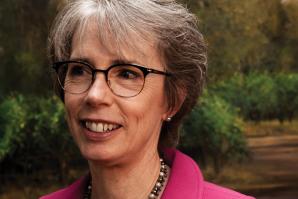Steven Yoder writes about business, real estate and criminal justice. His work appears in Vice, The American Prospect, Pacific Standard Magazine, Mic.com and elsewhere.Read more at www.stevenyoder.net. On Twitter @syodertweets.
By this person

Settling For Less
The rising cost of medical malpractice suits has made attorneys who take those cases an endangered species
Mamas, don’t let your babies grow up to be medical malpractice lawyers. That may lack the ring of Waylon Jennings’ original, but area attorneys say it’s a reality given the money-losing proposition of bringing malpractice cases in California.

The Herb Column: Competing With the Underground Market
Licensed operators say they’re barely holding on as their market share gets eaten up by illegal sellers
The underground market is flourishing in Sacramento and across the state. The BCC and city have promised a crackdown. But there’s disagreement in the industry about whether that’s the right move.

Down to the Details
Can fee adjustments incentivize more affordable housing projects?
Fees and permitting are a vital tool for municipalities looking to address the housing shortage on a local level. We take a look at different strategies being employed in the region.

The Herb Column: How Commercial Landlords Protect Their Assets in the Age of Legal Bud
For building owners out to make money in the cannabis space, it’s not all roses
For landlords with the right commercial space, the green premium would seem to be cash-flow heaven.

The Herb Column: Still Unbanked, Cannabis Enterprises Struggle
Federal law deters banks from serving legal cannabis businesses
Eleven months after recreational marijuana use became legal in California and six years on from legalization in Colorado and Washington state, legal pot growers and dealers still can’t use banks the same way other businesses can.

The Edtech Edge
Local edtech startups are less about disruption as they are about enhancing current models
Local edtech innovators aren’t trying to blow up traditional educational models. At a time when edtech funding models are on the decline, local founders are bootstrapping solutions to existing classroom needs.

Power Politics
The growing number of publicly owned CCAs offer cheaper and cleaner electricity than for-profit utilities — so are they viable in the long-term?
Community choice aggregators are the latest test of whether local, publicly run ventures can deliver cheaper and cleaner power than their investor-owned counterparts. But electricity procurement can be a fickle industry.

Mapping the Next Move
Now in its 36th year, accounting firm BFBA has turned its succession-planning expertise inward
Do business advisers practice what they preach? We look at how accounting firm BFBA handles its own succession planning, as its first generation partners approach retirement.

Fast Tracked
The results are coming in from a multiyear push to increase graduation rates — and they look promising
Delayed college graduation is costly to students, schools and local economies. Both Sac State and Los Rios implemented measures to help students graduate faster. Can they move grads through without diminishing the quality of education? Results look promising.

Classification Complications
How to navigate the maze of California’s new rules on overtime and independent contractors
Employee classification is already murky territory for many business owners, and recent changes have further tightened requirements. Yet, with huge penalties attached to mistakes, the laws are critical to understand.

MBA Makeover
As enrollment in MBA programs drops nationwide, area universities adapt their offerings for the modern student
With interest in MBAs flat or falling across the nation, can modernization help programs keep up with student interest? We take a look at how the region’s education programs are innovating their offerings.

Banning the Box
A new state law aiming to help those with a criminal record rejoin society is changing how companies hire
Giving ex-offenders a better chance at reintegration is behind the California Fair Chance Act, which took effect in January. With exceptions for a few types of jobs, the new law forbids businesses with five or more employees from asking applicants about criminal history until late in the hiring process — which could mean big changes in how many employers hire.

Small Wonders
19J’s microunits are a gamble — but will demand for downsized living make the project a winner?
Picture 350 square feet. That’s 11 queen-sized beds. It’s the inside of a school bus with an extra row or two of seats. It’s a little smaller than the average two-car garage. And it’s the size of 25-year-old Rachel Vaney’s apartment in Midtown Sacramento.

Strength in Numbers
It’s not just possible for companies to both diversify and perform well — evidence shows the two may be inseparable
Studies suggest that diversity and profit aren’t two sides of a
coin,
but more like the symbiotic relationship between bees and
flowers.
So what does diversity actually look like, why does it seem to
have
financial implications and how can businesses work toward
more
inclusive hiring practices?

Limits to Launch
Is the UC’s two-tiered tech-transfer system restraining innovation and economic growth?
Tech transfer at publically-funded universities isn’t just about generating revenue from IP — it’s about the public good. But is the UC’s strategy for negotiating licenses making this double-barrelled mission even more complex?

The Hidden Heist
Smaller businesses are more at-risk for fraud — here’s how to protect yourself
Each year, small and mid-sized organizations, including small businesses, lose the most to employee theft. We talked to financial advisors about the lessons they learned about how to prevent fraud from damaging your business.

The Legacy
As Holt of California approaches a crossroads, the company relies on its history of strong leadership transitions
Back in 1998, two family businesses —Holt Bros. and Tenco Tractors — merged into one, for a total of three families now under one business roof at Holt of California. Twenty years later, they rely on a long history of leadership transitions to select the next in line for succession.

Now Hiring
A dwindling immigrant workforce will have significant impacts on industry vitality and wages — the question is to what extent
The departure of long-established but undocumented Mexicans from California is a signal — along with other government data from the southwest border — that the flow of unauthorized immigration is shifting direction, perhaps dramatically.

Digital Detective
A State Bar opinion on electronic discovery underlines a new reality — lack of technology competence isn’t just a competitive risk, but an ethical one
From texts to photos to emails, every modern law case involves some sort of e-discovery — so why are lawyers still failing to do it?

A New Role Call
How two state institutions of higher education came to lead the way in gender parity
In the last 50 years, higher education’s customer base has become decidedly more female. In 1967, 40 percent of college students were women. By 2014, it was 56 percent. The U.S. Department of Education projects that will climb to 59 percent by 2025.
But the people responsible for delivering those educations are still overwhelmingly male.

Fortress of Solvency
For families taking care of a special-needs child or adult, solid financial and legal planning gives a measure of control over an expensive future
The day that Jenny and Bob had their son Justin in 1994, they set foot in a new world. Jenny went into labor four weeks early, and her baby presented in the wrong direction — feet first. So he was delivered through emergency C-section. Once he was born, his heart rate dropped instead of rising, as it should have. For weeks it wasn’t clear whether he’d survive.

The Great Millennial Migration
As millennials grow up, many are growing out of the urban core that has defined their generation — and redefining suburban life
Now that millennials are older and starting to have kids, the economics of schools and space are driving many of them to the suburbs, just as it did their parents.

A Port in the Storm
Value-based health insurance may offer stability for employers in a marketplace about to be upended by more new federal policies
Seven years after passage of the Affordable Care Act created a new world order in health insurance, it all may be upended. With a new administration in Washington, all or parts of Obamacare could be repealed and replaced. All the while, premium increases have continued apace:

From Lab to Launch
UC Davis churns out startups by giving its researchers a chance to mix with — and think like — entrepreneurs
Venture Catalyst is one part of a multipronged effort at the school that its leaders say is helping turn university research into companies that produce world-changing technologies. The school has facilitated a total of 49 startups in the last four fiscal years, up from 18 in the four years prior.

In Whom We Trust
A new federal rule is about to shake up the business of retirement financial advice
For a sense of how fungible the label “financial adviser” has become, talk to Mike Chamberlain of Chamberlain Financial Planning & Wealth Management, which has an office in Sacramento. “’Financial services industry’ is a very broad term,” he says, “and I don’t like being included in it.

The Family Fund
Immigrant entrepreneurs are twice as likely to launch new businesses, and their startup success often hinges on family
There are good reasons to focus on the special challenges posed by family businesses, like how to keep family resentments from turning to business rivalries and avoid nepotism that results in the wrong people working in key positions. But for some Sacramento immigrant family businesses, blood ties have been the key to survival.

The Golden Promise
Most sports economists dismiss the idea that new stadiums boost local economies, but there are reasons to think the Golden 1 Center could be different
When Oleg Kaganovich was growing up in Michigan in the 1980s and early ’90s, his city of Grand Rapids was suffering the doughnut effect then typical of downtowns everywhere: Shoppers and residents were fleeing for the suburbs. By 1990, fewer than one in 10 residents shopped regularly downtown, a drop from about one in three in the early 1960s, according to a local newspaper.
Sponsored

Big Data, Big Demand
University of the Pacific launches a program to meet the surging need for data scientists
Can Google know if you’re sick before your doctor does? A paper published in June in the Journal of Oncology asked just that — and surprisingly, the answer was yes.

The Case For New Practices
Bridging the generation gap in the legal field could mean offering more handholding — and more freedom
Among private law firms, a dam is about to break. According to research by two Los Angeles legal marketing experts, 96 percent of leaders at the country’s biggest 100 private practices are baby boomers or older. But many of their clients are younger.

Will the Mega-Grid Get Built?
Cal-ISO maps out the prospects for a single power grid for the West — but skeptics want to know who will run it.
Cal-ISO is one of 38 system operators for the geographic area that covers everything west of the eastern boundaries of Montana, Wyoming, Colorado and New Mexico. That compares with six system operators responsible for most of the rest of the country. “The divided operation of the western grid is not unlike having a bus with 38 drivers.”

The Macro Problems Caused By Microaggression
Bias isn’t always obvious — but its subtlest forms can hurt productivity and morale
An African-American employee is told that he “doesn’t sound black,” a Jewish employee hears that she “doesn’t look Jewish” and a gay staffer’s supervisor tells him he “doesn’t act gay.”
Those are real-life stories, according to several experts on workplace discrimination.

Hard Times at For-Profit U
If the for-profit college model fails, where will the students go?
When Chris Treiber left the Navy in 2011, he set sail on uncharted waters. His 10 years of service offered no natural path into a good job. He’d spent his last five of those guarding prisoners and had no civilian job experience. He had a GED, having dropped out of high school in 10th grade. And at age 32, he had a wife and five kids to provide for.

Dear Sacramento
Greta Gerwig’s upcoming full-length film, 'Lady Bird,' showcases her hometown pride — but what does it mean for film-making in the Capital Region?
Greta Gerwig, a Sacramento native and award-winning filmmaker and actress, won’t share many details about her upcoming project, a full-length independent film called “Lady Bird.” Except for one — where it’s being shot.

A Growing Green Debt?
As PACE takes off, realtors warn that unwary homeowners are complicating their finances
Call it the tale of two turfs. In summer 2014, 27-year-old Benjamin Triffo wanted to do something about his dry, unattractive yard. He owns a four-bedroom, four-bath duplex in Elk Grove that he’d bought in 2011, and his sprinkler lines were broken. But with the state passing rules last July that would allow fines for overwatering, Triffo quickly figured out that replacing his system and re-sodding would be like attaching a drain line to his checkbook.

The Endangered Blue-Collar Worker
While policymakers focus on the need for more grads with bachelor’s degrees, middle-skill jobs go unfilled
Douglas Stricker of Folsom, 58, knows all about the need for skilled laborers. In 1992, he launched Golden Development, a company that built storage tanks and other structures for refineries and chemical companies. He had a crew of between 20 and 40 workers but never could find enough reliable welders — even in jobs that paid up to $30 an hour.

Startups Meet the Smart Meter
SMUD wants to turbocharge technologies that can raise the IQ of its smart grid
Giving customers price incentives to use less energy during peak periods is a key feature of SMUD’s smart grid. That new metering system is designed to let both the utility and customers better monitor energy use in homes. Now SMUD is hoping to take its grid to the next level. It’s partnering with entrepreneurs who can give customers technology that lets them use SMUD’s price incentives to save money

Send in the Crowd
Equity crowdfunding offers small investors a slice of the pie, but will they take a giant hit?
Pauline Marx, 63, had been a pretty conventional investor in stocks and bonds until April 2014. But to her, the rock-bottom interest rates on fixed-income tools like Treasury bills and CDs felt like stuffing money under the mattress.Then a friend told her about Fundrise, a website that lets investors buy small shares of real estate ventures around the country.

Legal English as a Second Language
Why can’t lawyers communicate like other humans?
Richard Wydick has spent much of his professional life trying to change how lawyers write. In 1978, he led an article for the California Law Review with this broadside: “We lawyers cannot write plain English.” That piece created such a positive response that he turned it into a foundational book on legal writing that’s now in its fifth edition.

Five Clues That Profit Sharing May Work for You
As wages rise, profit-sharing plans could help small businesses compete for workers.
Competing with big-league firms for employees is tough — average pay at small businesses runs about two-thirds that offered at other companies. Not keeping up with pay hikes elsewhere can create staff turnover, eating into morale and creating operational problems. Enter profit-sharing plans.

The Incredible Lightness of Shrinking
The tiny-house movement wants to change the way you think about housing
In the past five years, 57-year-old Elaine Walker has lived in four cities: Washington D.C., two in Northern California and now Orlando, Fla. And in all four, she lived in the same house.That’s because it’s a farmhouse on wheels.

Small Home, Big Benefits
Five ways tiny housers say they’re better off
McMansion, meet tiny house. The symbol of the bubbling 2000s hasn’t exactly been displaced by the sub-400-square-foot home. But for many homebuyers in insecure times, shrinking their square footage has also downsized their worries.

Better Pay for Better Profits
How increased wages and operational improvements can help your bottom line
Among the counterintuitive gems economists have excavated in recent years is this curious insight: When the economy is humming along and unemployment is low, the U.S. death rate rises. Many in the field have tried to fathom why. And now, UC Davis Graduate School of Management interim dean Ann Huff Stevens and three of her colleagues think they know.

The Four Commandments of the Good-Jobs Strategy
How well-paying businesses make it work on the floor and at the bank
Judging by prevailing retail practices, somewhere etched in stone is this edict: “To slay thy competition thou shalt undercut on labor costs.”
But a few apostate companies have strayed from that decree by offering decent wages, good benefits and predictable work schedules. Shockingly, the wayward are prospering.

4 Tips for Profitable Management
Save money with better systems
Large retail chains like Costco, Trader Joe’s, QuikTrip and Mercadona pay wages and benefits considered high for their industries. They also use four key operational strategies:

Be Careful How You Classify
How to avoid wage litigation in the age of the $10 hour
For California labor lawyers, the 2012 Brinker v. Superior Court ruling was something akin to Brown v. Board or Roe v. Wade. In a case involving meal and rest breaks for hourly employees, the court ruled that businesses must have a policy giving workers those breaks — but they don’t have to ensure that staff actually take them. It seemed like near-total victory for business.

The Great Bank Shakeout
Community banks failures offer an opening to the small lenders that survive
With about 10 percent of total banking assets, community banks are the source of almost half the nation’s small-business loans and 43 percent of its farm loans. New regulations and low interest rates have shut down many smaller banks or forced mergers, but the survivors say they’re poised to take advantage of market openings and an improving economy.

Sales Pitch
Why more universities should offer sales training
The challenge of finding sales talent keeps some companies from growing or even surviving. That’s why sales training boosters say it’s time for university business schools to turn out graduates who can take sales jobs and quickly hit their numbers without months — or even years — of on-the-job training.

The Black Box of Sales Hiring
5 tips for hiring good salespeople who stay
For all its importance to business survival, companies tend to fail miserably at hiring sales staff. A 2011 survey of more than 400 firms by DePaul University researchers found that hiring one seller costs $29,000. But a lot of that money flutters out into the ether; a third of recruits don’t make it through their first year.

This Time, It’s Personnel
Will legislation to protect employees from workplace bullying stifle demanding managers?
Carrie Clark, a former teacher, says bullies aren’t confined to playgrounds. Sometimes, they run the whole school. And they do more than demand that work get done. They threaten, humiliate or intimidate for reasons unrelated to job performance.

Avoiding the Push Over
How to make an anti-bullying policy work
The Society for Human Resource Management has developed a model procedure for handling bullying complaints. Key language includes:



